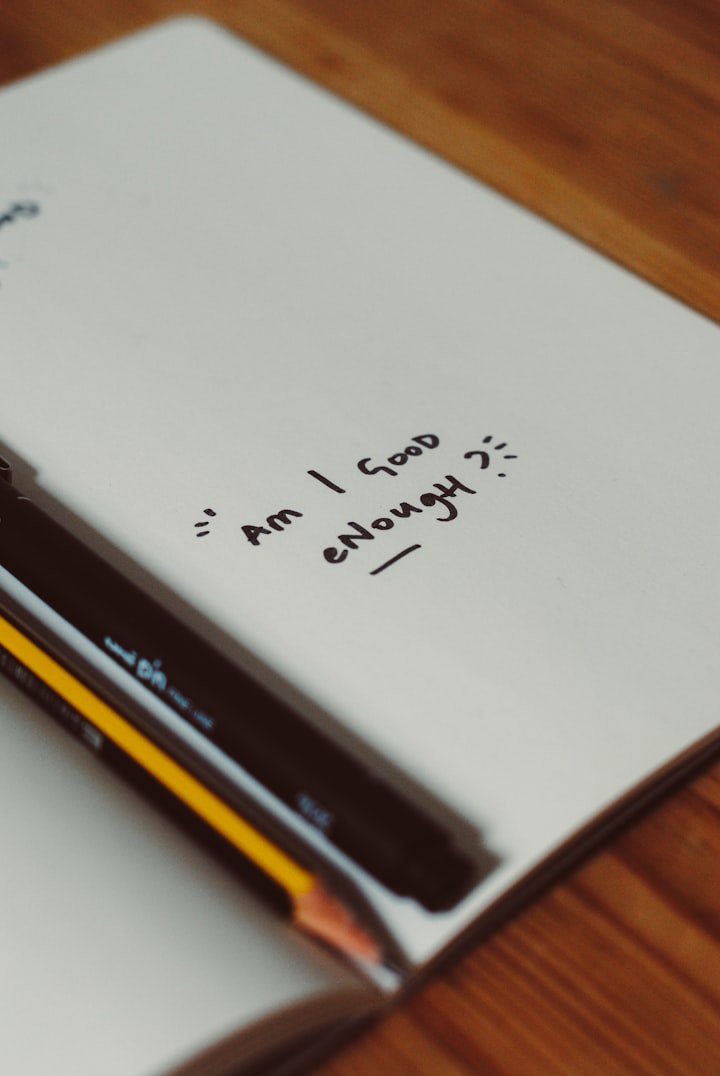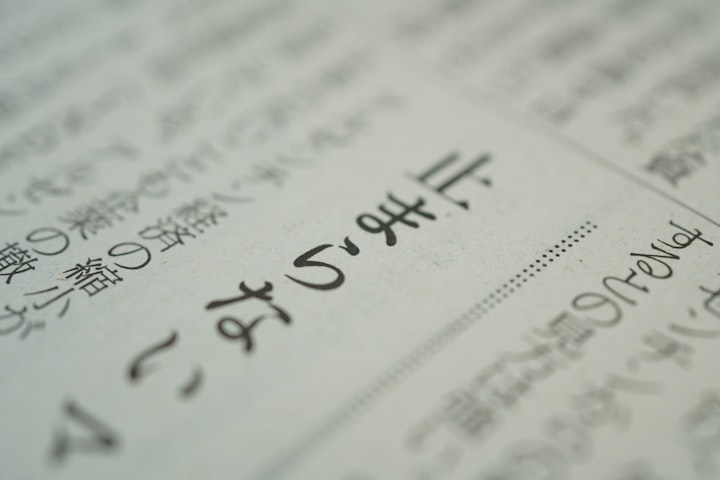
There’s a high school photo of me floating on Facebook. A friend took it before band class as I hunched over a thick 5-subject notebook balanced on a tilted music stand. I never even noticed her taking the photo until I saw it posted online. In the comments, I played my concentration as a joke, adding a contrived philosophical statement about being a deep, dark, emotional writer. I linked to the blatantly “emo” piece, said I was having a bad week, and we moved on.
What I don’t think anyone realized, however, was that the photo immortalized the moment I wrote a certain other piece, a poem I uploaded to the internet with as little ceremony as possible.
Part of me was trying to be the humble writer secretly reveling in my cleverness, because the poem, “Vow of Silence”, was my first successful acrostic. I waited for the comments to roll in. I dropped a hint, something like, “Kudos if you spot the secret.” I checked on the page every day, excited for when I could confirm a reader’s suspicions. I roleplayed that dramatic conversation in my head, rehearsing modesty, especially for when a friend or family member recognized the message.
I got a couple “likes.” A “favorite” or two.
No comments though.
So I dwelled upon the poem’s vertically-read message by myself.
Now be silent forevermore.
Was the inspiration standard teenage angst? Sure, I had a lot on my mind: challenging classes, college applications, marching band doubling as physical therapy, divorced parents with toxic baggage, a fractured paternal relationship, friends and their varying degrees and types of struggles…
I tried—I like to think I tried—my best to support everyone, but being infamously short-tempered and abrasive, yet strangely hyper-sensitive, my “support” usually made things worse or solved nothing at all. Meaning I got angrier and more frustrated with myself, which quickly led me to think that “expressing myself” and “being honest” were exercises in futility.
My solution, therefore, was to simply shut up.
Now be silent forevermore. I repeated that line over and over. The rhythm, the shape, the flow of that line stuck. I started hearing it between my idle thoughts. Any and every action of my life had that line as a phantom echo. Eventually, repeating the echo became completely involuntary, and I came to treat it as wisdom, a mantra to live by.
Thus began my self-fulfilling prophecy.
I wasn’t perfect at staying quiet, of course, but I saw people arrive at their answers without much input from me. I heard the complaints, I listened to the stories, I swallowed some gaslighting, and I fought with myself to keep my mouth shut. Discourse, I felt, was never welcome because moving on was the ultimate agenda. This was the affirmation I—a teenager, remember—translated into, “My voice is worthless to everyone around me.”
So I continued following my own vow.
Self-fulfilling prophecies are strangely liberating. Establishing the pattern of affirming and reinforcing that “vow of silence” locked me into a routine. A protocol. As the pattern continued to hold, my desire to express my feelings eventually dissipated. And as the desire faded, so too did a lot of the opinions. Emotions still left visceral, palpable imprints in me, but I had no wish or will to make them apparent to anyone outside of myself.
I guess that was the numbness. I stopped caring, because caring made me feel, and feeling made me talk. And when I talked, I either helped no one or made things worse. The self-fulfilling prophecy rolled on. I committed myself to self-hatred and isolation. After all, if I hated myself that much, if I do nothing but make problems worse, why would anyone want to care about me?
All this stopped my writing, the same emotional writing that became my lifeline through high school. Too emotional, I thought. No one wants to read straight pathos. But I did enjoy writing. I even went to college to hone my craft further. Still, my own contract threatened me in my head. Are you being quiet? This is all useless, worthless drivel. No one wants to read this.
Then this, this piece you’re reading right now, this confession of my honest thoughts, actions, and opinions, is a breach of contract. What gives, right?
The compulsion came after a recent conversation with my mother, a woman notoriously guarded about her vulnerabilities. She’s begun exposing them to her significant other, which resulted in flared emotions and upset all around. In the middle of their cool-off before they talked again, my mother, working to get her thoughts in order, said to me, “It’s because I opened my mouth, isn’t it?”
I asked her to elaborate.
“I upset him because I decided I wanted to be honest. I shouldn’t have. I should have just shut up.”
A bit surprised, a bit terrified, I stared at her. I felt cold and hollow as my own justification from high school echoed back at me. I can’t let her do the same thing to herself, I thought.
So for the very first time, I told my mother about the poem I wrote to myself. I told her I purposely contracted myself to silence, that I saw that commitment as my service to the people around me.
She burst into tears, aghast and shocked that I had done this to myself. But she let me keep explaining.
A part of me still believes I eased the burden of my existence from my peers and family. But the self-hatred and isolation, direct results of my silence, wore down my ability to see the value of interpersonal relationships. I lost my desire to build new relationships and grew content with the deterioration of those I already have.
However! I also know, from watching others, that the only way to build trust is to speak from that vulnerable place, no matter how much it hurts. Overcoming the hurt together and learning how to apologize and forgive—that’s the sincere, actual work of building a relationship.
My mother, content but still shaken, looked at me again. “Are you still committing yourself to that contract?”
No. I’m not that tormented teenager anymore. During a past self-hatred-fueled purge, I seem to have shredded the original paper draft and deleted the file from my computer and the internet. Maybe that’s when the self-fulfilling prophecy began to end.
Yet, I can’t deny that I still bite back a lot of my responses, meaning I am literal garbage at carrying conversation. Plus, spending over a decade silencing myself means I learned to be selective about when I speak to whom about what. Not everyone needs or wants passion or honesty or even opinion—and I say that as fact, with no spite at all. Patience is often the answer people are looking for.
It’s a balance, you see. Your voice is just as powerful as your silence, the passion and anguish in both equally heavy.
So I apologize to that teenaged me for taking so long to recognize this.
And I promise, with this revelation, I will never silence you again.
About the Creator
Nagisa K.
Afro-Okinawan, a fledgling writer on the path to publication!
Fiction and fantasy are my forte but I dabble in personal essays as well.






Comments
There are no comments for this story
Be the first to respond and start the conversation.